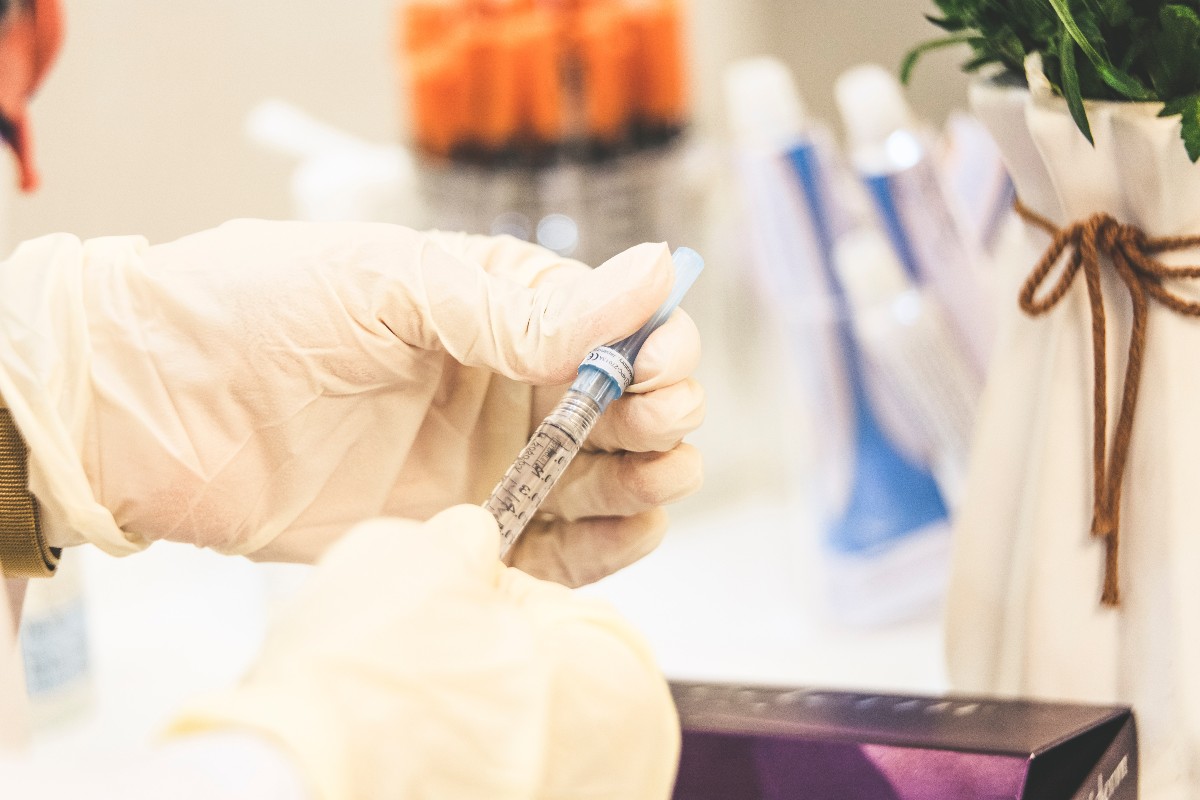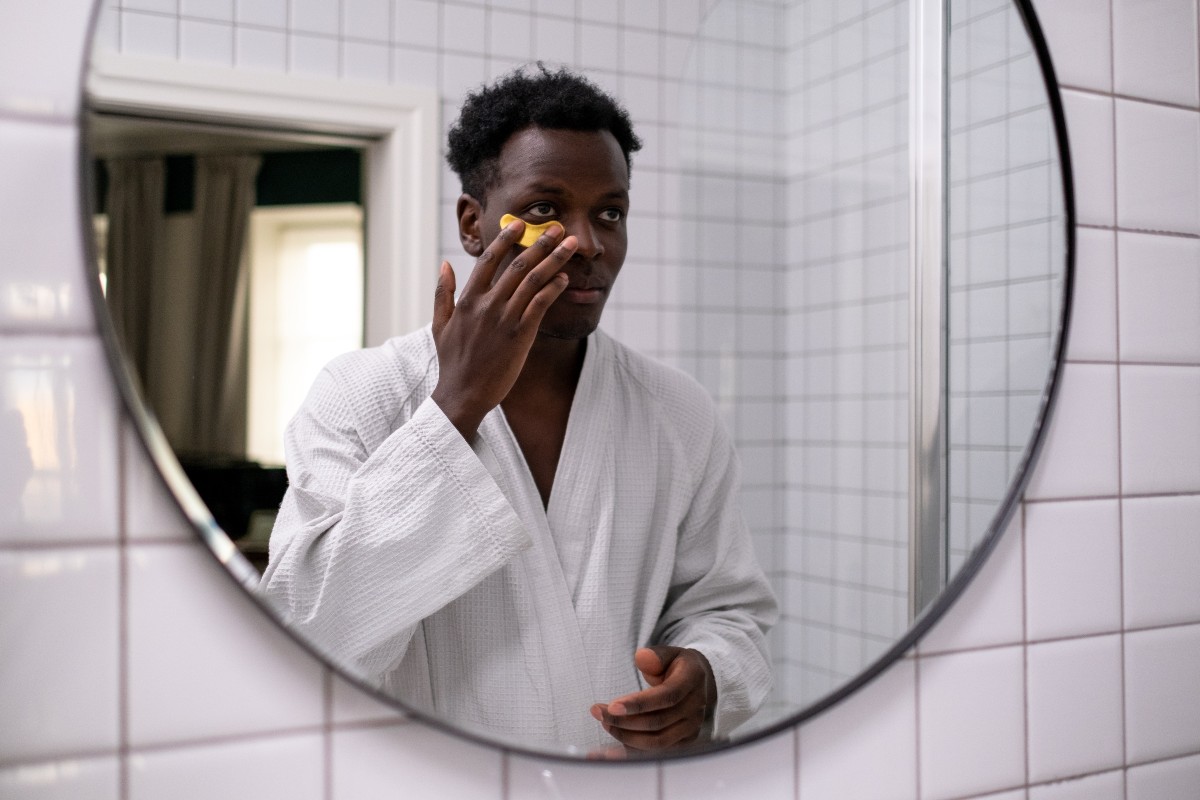You’ve undoubtedly heard of Botox. According to the American Society of Plastic Surgeons, about 250,000 men received Botox in 2020, making it the most popular cosmetic procedure.
Acupuncture is likely another word you’ve heard before. The practice, a hallmark of traditional Chinese medicine (TCM), involves inserting needles along specific points of the body known as “channels” and “meridians.” It’s commonly used for relaxation, pain relief, and digestive disorders.
Another type of acupuncture, known as cosmetic or facial acupuncture, is being hailed as a Botox alternative and for its ability to support rejuvenated skin.
“Cosmetic acupuncture and Botox are both popular treatments for reducing the appearance of wrinkles and other signs of aging,” says Jamie Bacharach, a licensed medical acupuncturist and the head of practice at Acupuncture Jerusalem. “Both treatments can be effective in reducing the appearance of fine lines and wrinkles, but they work in different ways and have different pros and cons.”
Which one is best for you? Is it possible to do both facial acupuncture and Botox to rejuvenate skin? We asked the experts to smooth out the details.

What is Botox?
Botox is a cosmetic procedure that uses injections to paralyze facial muscles and smooth wrinkles.
“[It] uses a toxin called botulinum toxin A to temporarily paralyze the muscles that cause wrinkles,” explains Bacharach. “This can help to smooth out fine lines and wrinkles, especially on the forehead and around the eyes.”
The FDA approved Botox for cosmetic use in 2002, and a 2019 review found that Botox was a safe and effective way to reduce wrinkles.
That said, it’s not without its drawbacks.
“There is a risk of side effects such as bruising, swelling, and drooping of the treated area,” says Bacharach.
Women are more likely to get the minimally-invasive procedure (4 million women received Botox in 2020, compared to 250,000 men). However, more men are embracing it — and sometimes referring to it as “Brotox.”
What is cosmetic acupuncture?
Facial acupuncture involves inserting super-fine micro-needles into the face. The number of needles varies, but Dr. Babak Azizzadeh, MD, FACS, of the CENTER for Advanced Facial Plastic Surgery says it’s usually between 60 and 80.
“The concept is that these needles go probably deeper than what typical micro-needling does [and] create a small area of micro-injury,” says Azizzadeh, a globally recognized and Harvard dual board-certified facial plastic and reconstructive surgeon and facial plastic surgery expert.
What’s the point?
“It results in essentially enhancement of the collagen and elastins that are [in] deeper layers,” Azizzadeh continues. “So, in a sense, cosmetic acupuncture is closer to the concept of skin rejuvenation [than Botox].”
On the other hand, Botox focuses on relaxing overactive muscles to reduce crow’s feet and forehead lines.
“Botox is really more focused on muscle changes that enhance aesthetic outcomes, whereas cosmetic acupuncture is more related to impacting the skin and the deeper skin layers for improving the texture and quality of the skin,” Azizzadeh says.
Is there data to back cosmetic acupuncture’s benefits like there is for Botox? Not according to Azizzadeh. “It’s a very holistic Eastern medicine approach,” he says.
It may take longer to see results if you opt for facial acupuncture over Botox.
“Cosmetic acupuncture is not as immediately effective as Botox, and the effects may not be as dramatic,” Bacharach says. “It also typically requires a series of treatments to achieve the desired results, whereas Botox can produce noticeable improvements after just one treatment.”

Facial acupuncture vs. Botox: Which should you choose?
Now that you know exactly what facial acupuncture and Botox are all about — and how they’re different — which one is best for you? It depends on your goals and preferences.
“In general, there is no ‘better’ option between cosmetic acupuncture and Botox,” Bacharach says. “When choosing between cosmetic acupuncture and Botox, it is important to consider your individual needs and preferences. Some people may prefer the natural, holistic approach of acupuncture, while others may prefer the immediate, dramatic results of Botox.”
Botox has data behind it, which may appeal to people who prefer evidence-based approaches and treatments.
Even if you’re leaning toward one or the other based on face-value analysis, Bacharach recommends getting an opinion from a qualified expert, such as a dermatologist. The two are pretty distinct; you can even argue that facial acupuncture is not a Botox alternative, even though they both seek to rejuvenate the skin. Is it possible to do both if each appeals to you? Yes, says Azizzadeh.
“Botox and cosmetic acupuncture . . . can probably be used more complementary with one another,” he says. “They’re not a replacement for one another.”
Facial acupuncture and Botox may leave your skin looking and feeling glowing, smooth, and rejuvenated. However, it’s important to remember that many factors play into your skin’s appearance and how quickly it ages, including genetics, sun damage, and diet. Though it’s possible to slow down and some visible signs of aging, you can’t turn back the hands of time completely or forever. If procedures make you feel good and you can afford them, great — there’s no shame in them. However, it’s critical that you manage your expectations.
Other ways to keep skin in tip-top shape include applying broad-spectrum sunscreen daily, using a moisturizer twice per day, and eating a balanced diet full of vitamins and antioxidants. If you’re concerned about your skin’s health, reach out to a dermatologist. You can typically get a referral through your primary care physician or insurance company. You should speak to a provider before starting any treatment.




